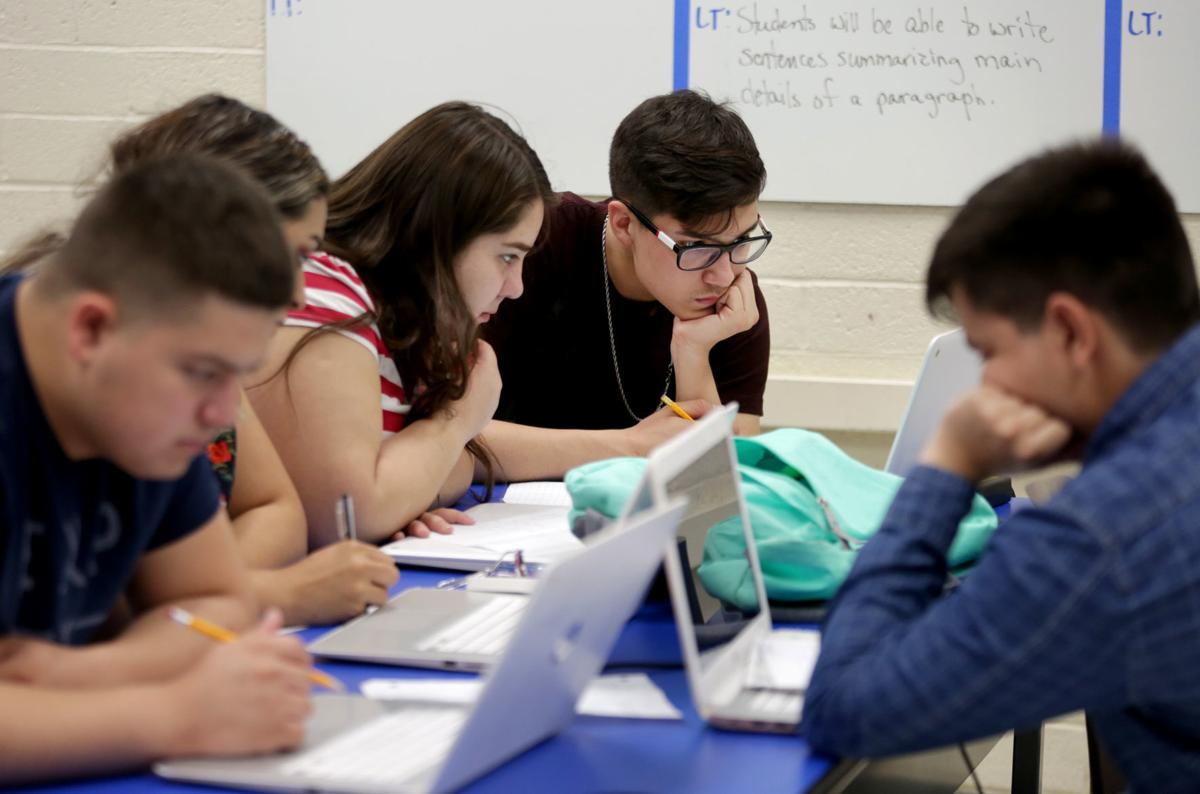A bill allowing students learning English to spend just two hours a day in language-development classes, rather than four, has been resurrected from its seeming death at the Arizona Capitol — after the sponsor promised to water it down.
The bipartisan measure sponsored by Republican Rep. Paul Boyer of Phoenix has a broad array of supporters and had sailed through the House with only one vote against it before being stopped dead in its tracks in Arizona Senate President Steve Yarbrough’s Rules Committee.
The bill was among the top legislative priorities for Tucson Unified School District and other districts around Southern Arizona, which have been lobbying at the state Capitol to change the rules to allow schools more flexibility with English learners.
Yarbrough refused to hear the measure, HB 2435, telling the Arizona Capitol Times that he was around for the crafting of the four-hour block, and he believes the model is working.
Many others — including the Arizona Chamber of Commerce and Industry and the Arizona Education Association — disagreed.
They argued Arizona’s four-hour block of English development is among the strictest in the nation and has produced some of the worst outcomes.
Arizona’s English learners are segregated from their English-speaking peers, giving them less opportunity to interact with, and pick up the language from, native English speakers. And because they’re stuck in four hours per day of English immersion, it’s difficult for students to fit in all their required classes, and English learners are less likely to graduate high school.
Yarbrough on Monday relented, and the bill cleared the Senate Rules Committee unanimously — with the promise that it will be amended before the full Senate votes on it.
The amendment would keep the four-hour requirement in place for students in their first year of English development.
But the bill would allow schools to reduce the required hours for students who have already completed their first year of immersion, but are not yet proficient in English, according to Stacey Morley, the government affairs director at Stand For Children, which is backing the bill and helped craft the amendment.
“We can’t get rid of the (structured English immersion model) entirely, but this is a compromise,” Morley said.
The measure would also allow schools to front-load that time so students could spend the first few months of the school year in an immersion class, then move students into mainstream classes.
And it would require better reporting of the outcomes for Arizona’s English-language learners.
Morley said the amendment was a compromise to ease concerns that the measure ran afoul of the “English Only” Proposition 203 from 2000, which stated that English learners must be placed in a structured English immersion program.
But the proposition states that the immersion should be used for a “temporary transition period not normally intended to exceed one year,” giving lawmakers an opening to reduce the four-hour block after the first year.
“Other states that have very similar ballot language as ours have always used it as a one-year transition,” Morley said.
But that hasn’t been the case in Arizona, where the average English-language learner spends seven years in structured English immersion, she said.
“If you’ve been an ELL (English-language learner) student for six years, maybe four hours of immersion isn’t working for you, right?” she said.
Boyer, the bill’s sponsor, said he already received a promise from Republican Sen. Sylvia Allen, chair of the Senate Education Committee, to amend the bill before it receives a full vote in the Senate, and expects the bill to easily clear the upper chamber.
Boyer said Gov. Doug Ducey’s staff has indicated he will sign the bill if it lands on his desk.





